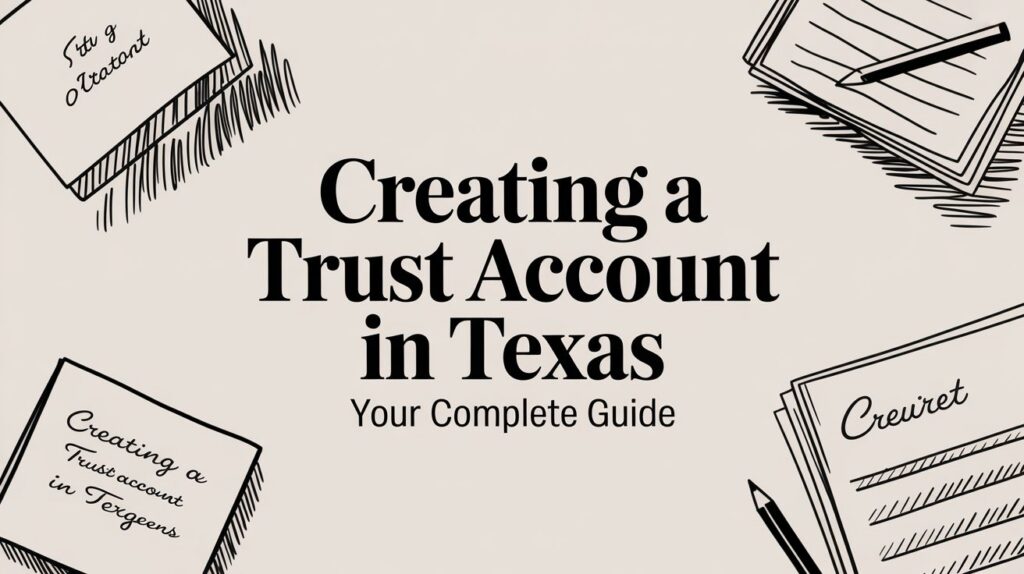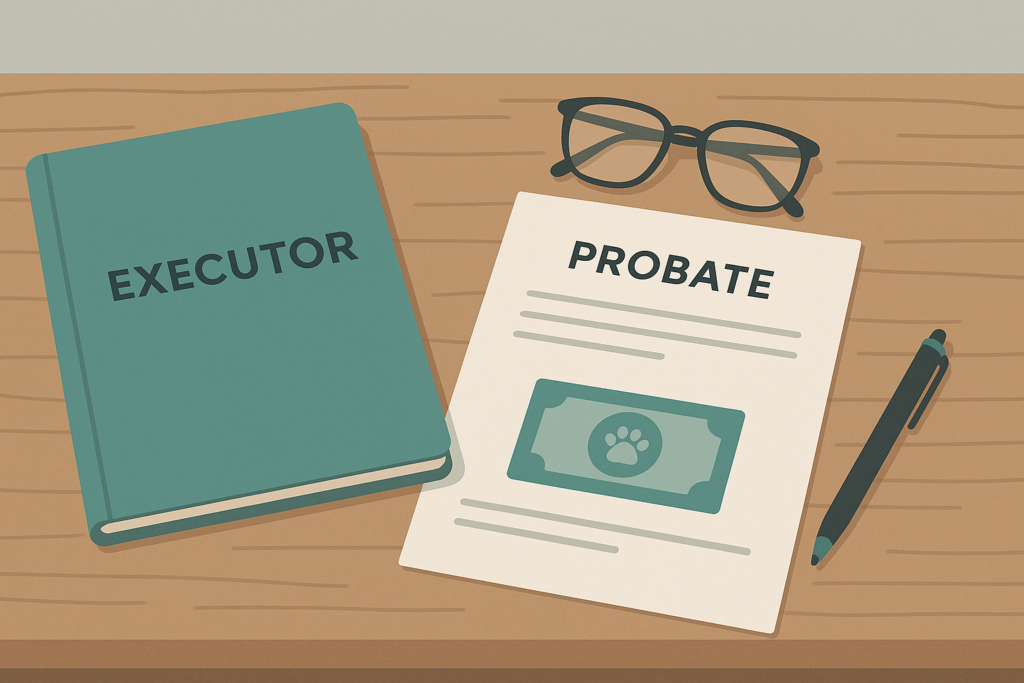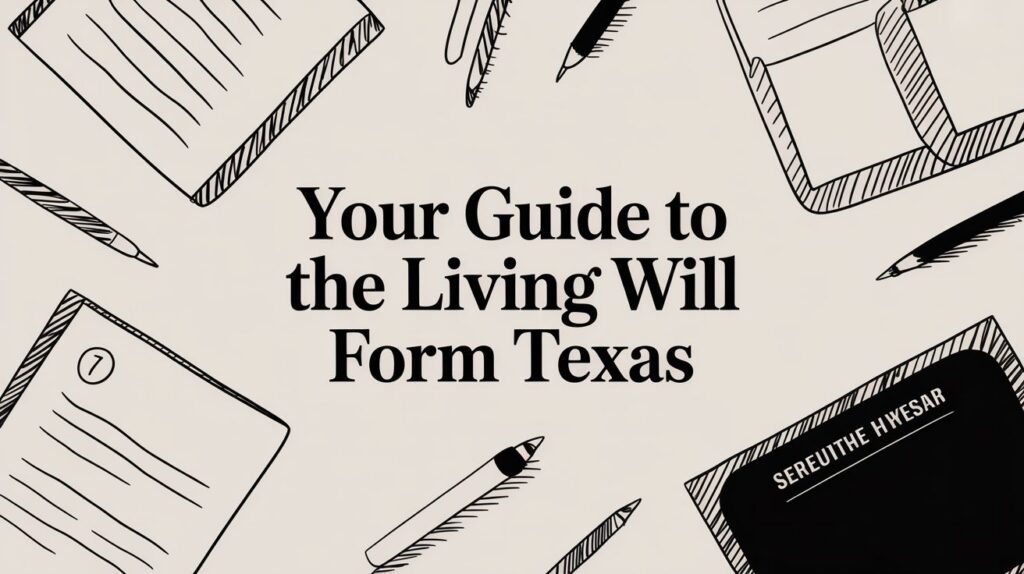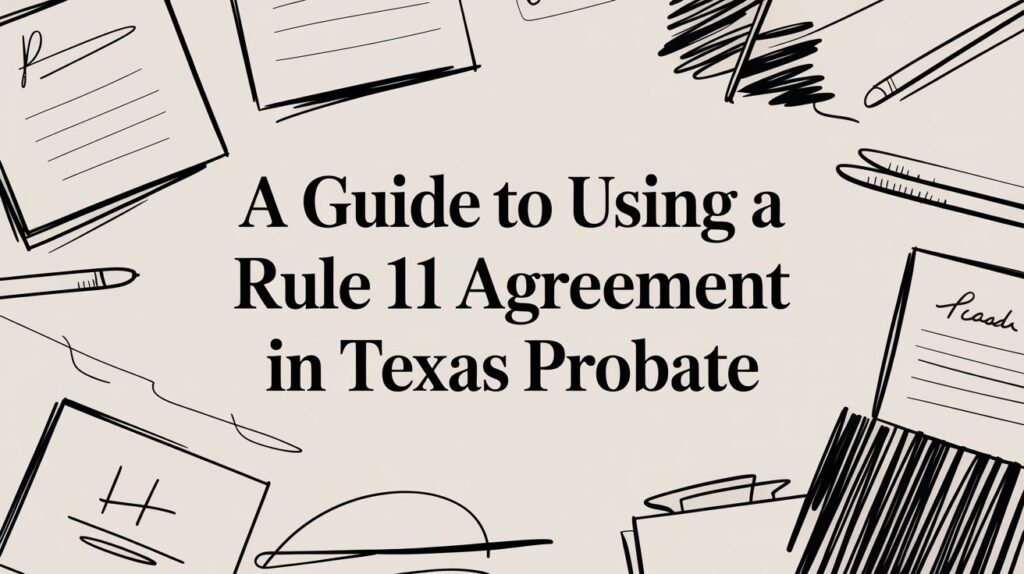If you’re wondering, “When is probate not necessary in Texas?” you’re not alone. Probate can seem like an intimidating process, but there are scenarios where it’s entirely avoidable. By understanding these situations, you can save time, money, and stress for yourself and your loved ones. In this article, we’ll explore these scenarios in detail, blending storytelling with practical advice to simplify what might otherwise feel overwhelming.
What Is Probate, and Why Might You Avoid It?

Probate is the legal process that settles a deceased person’s estate. This includes verifying the will, distributing assets to beneficiaries, and settling debts. While probate has its advantages, such as ensuring proper asset distribution, it can also be time-consuming, expensive, and public. That’s why understanding “When is probate not necessary in Texas?” is so important for effective estate planning.
In Texas, probate may not be necessary when assets are structured to transfer directly to heirs or beneficiaries. This proactive planning eliminates the need for court involvement and ensures a seamless transition. Moreover, avoiding probate can help protect the privacy of your financial matters, as probate proceedings are public records.
Why Avoid Probate?
Avoiding probate isn’t just about saving money—it’s about creating a stress-free experience for your family. Probate proceedings can take months or even years, delaying the distribution of assets. Additionally, probate can involve hefty legal fees and court costs, eating into the value of the estate. For many families, avoiding probate is a way to ensure their loved ones aren’t left waiting during an already difficult time.
The Small Estate Affidavit: A Practical Solution

One common situation where probate isn’t necessary in Texas involves the small estate affidavit. This legal tool is available under the following conditions:
- The total value of the estate is $75,000 or less (excluding exempt property).
- The deceased did not leave a will.
- There are no significant debts, except those secured by real estate.
Real-Life Scenario
Consider Sarah, a retired teacher who passed away without a will, leaving $60,000 in a savings account. Her daughter, Emma, used a small estate affidavit to access the funds without undergoing the probate process. This approach saved the family time and money while providing immediate access to necessary resources. Small estate affidavits are particularly helpful for families with limited financial means, allowing them to settle an estate quickly.
Joint Ownership and Survivorship Rights

Another scenario that answers “When is probate not necessary in Texas?” involves joint ownership withsurvivorship rights. This type of arrangement applies to assets like bank accounts, real estate, and other jointly held property. When one owner dies, the surviving owner automatically takes full ownership, bypassing probate entirely.
How It Works
Imagine John and Maria, a married couple, owning a home as joint tenants with right of survivorship. When John passes away, Maria automatically becomes the sole owner of the property. This method ensures that the surviving owner avoids court proceedings, reducing stress and financial burden during a difficult time. It’s a straightforward solution for families who prioritize simplicity and efficiency in transferring property.
Beneficiary Designations: A Powerful Probate Avoidance Tool
Beneficiary designations are a straightforward way to bypass probate in Texas. This applies to financial accounts and other assets that allow you to name a beneficiary, including:
- Life insurance policies
- Retirement accounts like 401(k)s and IRAs
- Payable-on-death (POD) and transfer-on-death (TOD) accounts
By naming beneficiaries, these assets transfer directly upon your passing, avoiding probate altogether. Regularly updating your beneficiary designations is critical to ensure your wishes are followed, particularly after significant life events such as marriage, divorce, or the birth of a child.
Example
Suppose Alex, a single father, has a retirement account where he names his daughter, Lily, as the beneficiary. Upon Alex’s death, Lily receives the account balance without court intervention. This simplifies the process, ensuring financial stability for her future. Beneficiary designations are an easy yet effective step for anyone looking to simplify estate planning.
Transfer-on-Death Deeds for Real Estate
A transfer-on-death (TOD) deed is another effective tool for avoiding probate in Texas. This legal document allows you to name a beneficiary for your real estate, ensuring the property transfers directly to them upon your death.
Why It’s Useful
If you own a home and want to leave it to your child, you can file a TOD deed naming them as the beneficiary. Upon your death, the property will pass directly to your child without requiring probate. This tool is especially valuable for homeowners looking to preserve their family’s assets while minimizing legal complexities. It also provides peace of mind knowing that your real estate will be handled according to your wishes.
Community Property with Right of Survivorship
As a community property state, Texas offers an additional probate avoidance method: community property with right of survivorship. This arrangement allows married couples to own property together, ensuring that it passes directly to the surviving spouse upon one partner’s death.
Real-Life Example
Mark and Susan co-own a business as community property with right of survivorship. When Mark passes away, Susan automatically becomes the sole owner of the business. This eliminates the need for probate and ensures that Susan can continue operating the business without interruption. This type of arrangement is ideal for couples who want a seamless transition of ownership for shared assets.
Trusts: The Comprehensive Probate Avoidance Solution
Living trusts are widely regarded as the gold standard for avoiding probate. By transferring assets into a trust, you retain control over how they’re distributed while eliminating the need for court oversight.
Benefits of Trusts
- Avoid probate for all assets within the trust.
- Maintain privacy, as trusts are not part of public record.
- Simplify the management of complex estates.
- Provide detailed instructions for asset distribution, even in cases of incapacitation.
Storytime: The Thompson Family
The Thompsons owned multiple rental properties and a significant investment portfolio. They established a living trust, ensuring their assets passed directly to their children without court involvement. This not only preserved family wealth but also reduced conflict among heirs. By planning ahead, they avoided delays and ensured a smoother transition of their estate.
Digital Assets and Modern Considerations

The digital age has introduced new questions about probate. Many digital assets, such as cryptocurrency or online accounts, can bypass probate if proper beneficiary designations are in place. Platforms often allow you to assign a designated person to inherit these assets directly.
Example
Alex owned a cryptocurrency portfolio and named his brother as the beneficiary on the custodial platform. Upon Alex’s passing, the portfolio transferred seamlessly to his brother without requiring probate. This example highlights the importance of including digital assets in estate planning. Failing to account for these can leave valuable assets in limbo.
Steps Executors Can Take to Avoid Probate
As an executor, you play a crucial role in managing an estate. Your actions can significantly impact whether probate is necessary or can be avoided altogether. Follow these expanded steps to streamline the process and reduce the likelihood of needing probate:
1. Identify Non-Probate Asset
Begin by reviewing all assets of the deceased to identify those that bypass probate. Common examples include payable-on-death accounts, transfer-on-death deeds, jointly owned property with survivorship rights, and accounts with named beneficiaries. Knowing which assets fall outside probate simplifies your task as executor.
2. Evaluate the Estate’s Value
In Texas, smaller estates may qualify for simplified procedures such as a small estate affidavit. Assess whether the total value of the estate falls below the $75,000 threshold (excluding exempt property). If it does, you can avoid a full probate process.
3. Utilize Beneficiary Designations and Deeds
Ensure that assets like life insurance policies, retirement accounts, and real estate have up-to-date beneficiary designations or transfer-on-death deeds. These tools allow direct transfers to named beneficiaries without involving the courts.
4. Consult an Estate Planning Attorney
Legal advice is invaluable, especially for complex estates. An attorney can guide you through the appropriate legal tools and strategies to avoid probate, such as setting up trusts or using community property agreements. They can also help address potential legal challenges.
5. Communicate Clearly with Heirs and Beneficiaries
Transparent communication with family members and other beneficiaries reduces misunderstandings and potential disputes. Keep them informed about the estate’s assets and the steps you are taking to manage them efficiently.
6. Organize Legal Documents
Ensure that all essential documents are in order and easily accessible. This includes wills, trust agreements, property deeds, and financial account information. Having well-organized paperwork can prevent delays and confusion.
7. Use Simplified Court Processes When Applicable
Even if probate is unavoidable, Texas offers simplified probate processes such as independent administration. This approach limits court involvement and streamlines the management of the estate.
8. Pay Debts and Taxes Efficiently
Settle any outstanding debts and taxes promptly to avoid complications. Keeping a clear record of payments helps maintain transparency and accountability.
9. Leverage Trusts for Long-Term Planning
While this step may not apply posthumously, establishing living trusts during the estate owner’s lifetime is a powerful way to avoid probate for future generations. If the deceased has already set up trusts, follow the instructions detailed within them to distribute assets.
10. Educate Yourself on State Laws
Probate laws vary by state, and Texas has unique provisions for estate management. Familiarize yourself with these laws to ensure compliance and leverage any opportunities for simplified estate handling.
By taking these steps, executors can minimize the complexity of estate management and, in many cases, avoid probate altogether. This not only saves time and money but also ensures a smoother experience for everyone involved.
Addressing Common Misconceptions

“All estates must go through probate.”
This is a myth. Many assets bypass probate through planning tools like trusts and beneficiary designations.
“Having a will eliminates the need for probate.”
While a will simplifies asset distribution, it doesn’t eliminate probate. Additional measures are needed to bypass the court process entirely.
“Probate is always lengthy and expensive.”
In Texas, simplified probate procedures and proper planning can significantly reduce costs and time. Understanding the tools available can make all the difference.
Cost Comparison: Probate vs. Avoidance
Avoiding probate can lead to significant cost savings. For instance:
- Probate costs in Texas range from $2,000 to $10,000.
- Setting up a trust may cost $1,500 to $3,000, but it eliminates future probate expenses.
- TOD deeds and POD accounts offer affordable, effective probate avoidance options.
Final Thoughts
When is probate not necessary in Texas? The answer lies in proactive planning and using legal tools effectively. By leveraging options like small estate affidavits, joint ownership, trusts, and beneficiary designations, you can simplify the estate transfer process, save money, and reduce stress for your loved ones.
Taking the time to plan now ensures that your assets are handled according to your wishes. Whether you’re a homeowner, parent, or business owner, understanding probate avoidance strategies can make a significant difference. Start your estate planning journey today to secure peace of mind for yourself and your family.








